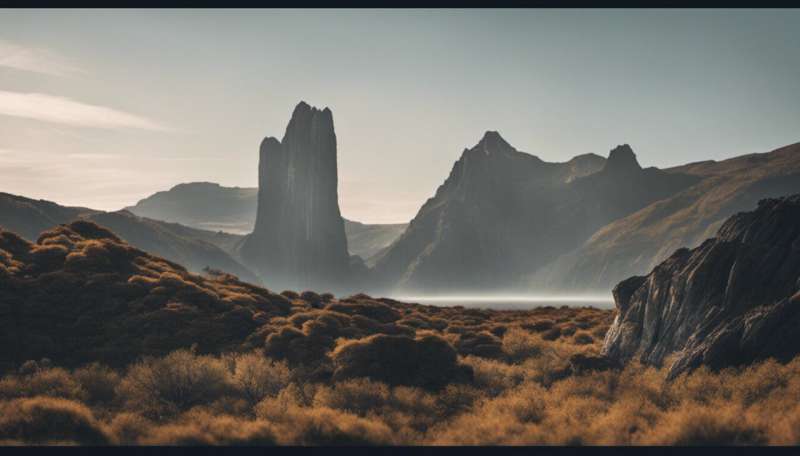Indigenous knowledge is increasingly valued, but to fully respect it we need to decolonize science. Here's how

We are witnessing a resurgence of Indigenous knowledge and growing acknowledgement of its scientific value worldwide.
In Aotearoa, there's been some progress, including the introduction of a public holiday to mark , the beginning of a new year in maramatakaâthe MÄori calendar based on the phases of the Moon, the movement of stars and the timing of ecological changes.
But progress has not been straightforward, with some scientists publicly .
At the same time, MÄori scientists have drawn on and advanced mÄtauranga and continue to make space for te reo, tikanga and honoring Te Tiriti o Waitangi in research.
Our recent explores pÅ«taiaoâa way of conducting research grounded in kaupapa MÄori.
In education, pÅ«taiao is often simplified to mean science taught in MÄori-medium schools that includes mÄtauranga, or science taught in te reo more broadly. But science based on kaupapa MÄori is generally by MÄori, for MÄori and with MÄori.
Our research extends kaupapa MÄori and the important work of pÅ«taiao in schools into tertiary scientific research. We envision pÅ«taiao as a way of doing science that is led by MÄori and firmly positioned in te ao MÄori (including mÄtauranga, te reo and tikanga).
PÅ«taiao as decolonizing science
PÅ«taiao privileges MÄori ways of knowing, being and doing. It is a political speaking back for the inclusion of te ao MÄoriâmÄtauranga, te reo, tikanga and Te Tiriti o Waitangiâin science.
Conducting research this way is not new. Many MÄori scientists have drawn on mÄtauranga and kaupapa MÄori in their research for decades. Our conceptualization of pÅ«taiao is an affirmation of the work of MÄori scientists and a pathway for redefining and transforming scientific research for future generations.
Decolonizing science is at the heart of pÅ«taiao. It challenges and critiques the academy and disciplines of Western science. Decolonizing science requires a focus on histories, structures and institutions that act as barriers to mÄtauranga, te reo and tikanga.
We argue that decolonizing science is a necessary step before we can Indigenize science.
Like mÄtauranga, pÅ«taiao is embedded in place and in the people of those places. It centers, prioritizes and affirms MÄori identity in the context of scientific research and science identity.
The importance of the researcher in pūtaiao
How we identify as MÄoriâtangata whenua or rÄwaho (people not related to the hapÅ« or whÄnau), ahi kÄ (people who keep the home fires burning) or ahi mÄtaotao (people who may have been disconnected to the land through lack of occupation over generations)âfundamentally changes how we interact with people and place through research.
To practice pūtaiao effectively, researchers are required to understand who they are and how that informs the research questions asked, the research relationships formed, the location of the research and the way research is conducted.
Kaupapa MÄori, as articulated by distinguished education scholar Graham Hingangaroa Smith, requires two approaches to decolonisation: .
Culturalist approaches center te reo, mÄtauranga and tikanga. The groundbreaking work led by professor of marine science and aquaculture , using , is an excellent example of a culturalist approach to decolonizing science.
A structuralist approach means paying attention to and dismantling the structures within science which continue to exclude MÄori knowledge and people. It encourages us to think about the colonial roots of science and how science has been used to justify colonial violence and oppression of MÄori.
Captain Cook's "scientific voyage" to Aotearoa is a great example of how .
Challenging the status quo
PÅ«taiao reframes the conversation around the inclusion of mÄtauranga MÄori in science. It considers the relationship between te ao MÄori, the researcher and science to imagine how to decolonize, Indigenize and transform science.
We understand science not simply as scientific knowledge but as a knowledge system that spans research, education, academia, scientific practice and publications, as well as the evaluation and funding and access to science, its legitimacy and its .
There has been much research on MÄori experiences within the science system, including the when MÄori scientist are expected to lift their colleagues' understanding, and the difficulties of . A lone MÄori scientist is often tasked with upskilling their colleagues, representing MÄori on committees and leading cultural practices in addition to standard loads of supervising, teaching and research.
To challenge the status quo, we explored different ways of creating ecosystems or "flourishing forests" of MÄori scientists to advance pÅ«taiao. This includes creating networks of MÄori staff in science by establishing research centers such as and the .
It also means creating research projects that move beyond the siloed disciplines within the science system. In this way, pÅ«taiao enables MÄori to see themselves and be seen within science.
PÅ«taiao offers a practical foundation, connecting MÄori science leaders to transform science. Whether this happens through new university courses, academic programs, research centers, institutions or regional and community hubs remains to be seen.
It is certain, however, that pÅ«taiao, conceptualized as kaupapa MÄori science, offers many pathways for MÄori scientists to continue to draw on and advance more than mÄtauranga to decolonize and, ultimately, redefine science into the future.
Provided by The Conversation
This article is republished from under a Creative Commons license. Read the .![]()




















